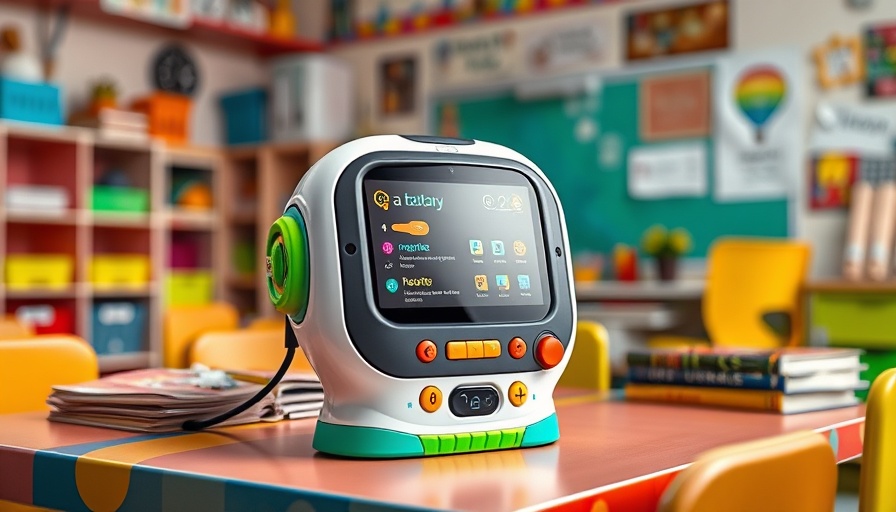
Meet Dex: A Revolutionary Way to Learn Languages
As technology continues to transform how we live and interconnect, three innovative parents, Reni Cao, Xiao Zhang, and Susan Rosenthal, recognized the need for more engaging educational tools for children. Transitioning from their tech careers, they founded Dex, a groundbreaking AI-powered camera designed to teach children aged 3 to 8 new languages while encouraging curiosity and real-world interaction.
The Necessity of Innovative Learning Tools
With the rise of screen time among children, many parents are naturally concerned about how it affects their development. Dex attempts to bridge this gap, blending digital interaction with authentic experiences. By leveraging AI and image recognition, the device allows children to explore their surroundings and learn language in a playful, interactive manner. As Cao puts it, “We’re trying to teach authentic language in the real world in a way that’s interactive.” This hands-on approach integrates learning with exploration, directly addressing concerns about passive consumption of content.
How Dex Works: A Blend of Fun and Education
Resembling a high-tech magnifying glass, Dex features a camera that identifies objects and translates them into the selected language. Kids can point Dex at items, such as a fruit or toy, and instantly learn that word in languages including Spanish, French, Chinese, and more. The interactive stories included in the device prompt children to engage with narratives, fostering both language acquisition and imagination. This design aims at empowering children not merely to memorize vocabulary but to understand and use language in context — a significant advantage over traditional apps.
Investing in the Future: Funding and Support
Since its launch, Dex has attracted significant attention and raised $4.8 million in funding, highlighting the investment community’s recognition of its educational potential. In the current startup landscape, tapping into the right funding sources is essential for growth. Whether it's through government grants for business startups or venture capital, securing financial backing can propel innovative projects like Dex. For aspiring entrepreneurs, understanding the landscape of business startup funding can be a game-changer.
The Business Model Behind Dex
Dex’s focus on children's language learning serves as a reminder of the rising market for educational tech startups. As competition grows among businesses targeting this demographic, startups must differentiate themselves through innovative solutions and effective business strategies. Understanding ongoing business startup trends and utilizing resources such as business startup courses and networks can provide valuable insights to navigate this competitive field effectively.
Creating Lasting Language Learning Experiences
Dex is not just a device; it represents a shift towards immersive language learning in young children. The device’s emphasis on real-world interaction can transform how children perceive language learning—making it an enjoyable exploration rather than a mundane task. As parents, encouraging this level of engagement can lead to better retention and understanding, fostering lifelong language skills.
Challenges and Opportunities for Startups
The journey of a startup is fraught with challenges. From business startup costs to marketing effectively in a saturated market, entrepreneurs need to arm themselves with knowledge and planning. By engaging with startup incubators, consultants, and attending relevant workshops, new founders can develop a solid business startup checklist to navigate these obstacles. Exploring markets like educational technology equips startups with the insights to stand out and thrive.
Conclusion: Embrace the Future
The advent of innovative tools like Dex highlights the growing demand for engaging educational resources. For startup enthusiasts, the success of Dex emphasizes the importance of blending technology with education. As the landscape of learning continues to evolve, this presents a fertile ground for future business ventures in the tech industry, particularly those that address the challenges of modern-day learning. Consider diving into the world of startups, leveraging available resources, and perhaps creating your own impactful solutions.
 Add Row
Add Row  Add
Add 



Write A Comment